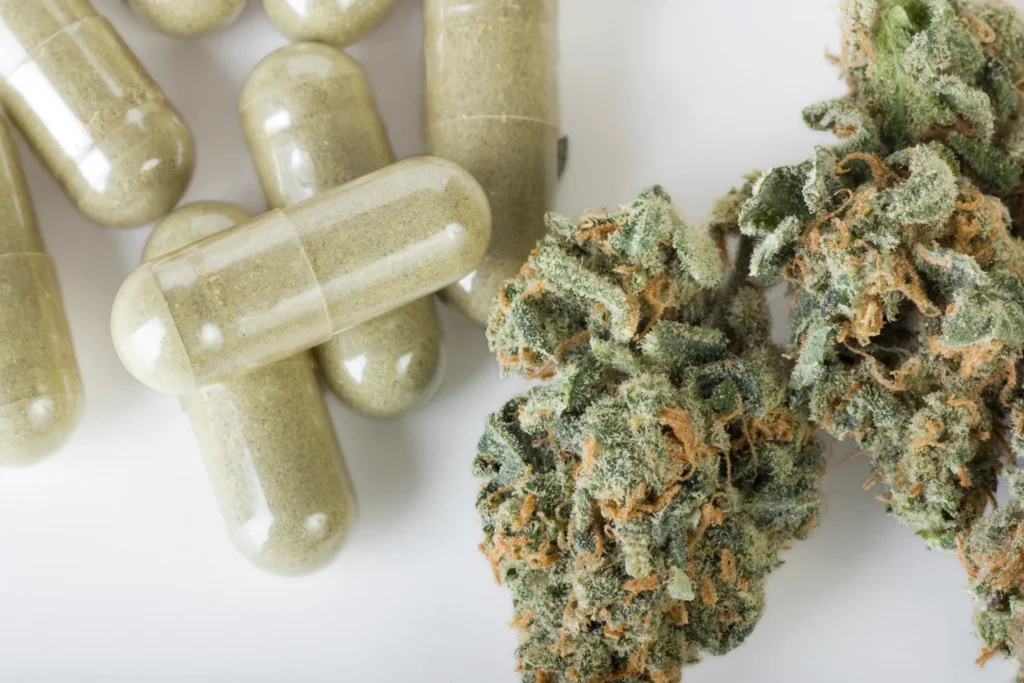Diabetics Raises Once considered a contentious drug, cannabis is now widely accepted and legal in many regions of the world. Growing interest in its possible advantages and disadvantages is a result of this societal shift, especially among vulnerable groups like those who have diabetes. Millions of people worldwide suffer from diabetes, a chronic illness that necessitates careful management of lifestyle factors like food, exercise, and medication.

Understanding Diabetes and Its Management
A metabolic disease known as diabetes mellitus, or simply diabetes, is typified by persistently elevated blood sugar levels. Diabetes arises from insufficient insulin production (type 1 diabetes) or inefficient insulin utilization (type 2 diabetes). The pancreas secretes the hormone insulin, which aids in controlling blood glucose levels and promotes the uptake of sugar by cells for energy. Diabetes can cause major side effects like cardiovascular disease, renal damage, nerve damage, and eyesight loss if it is not well managed.
Diabetics Raises Types, Effects, and Legal Status
The Cannabis sativa plant is the source of cannabis, also referred to as marijuana. Tetrahydrocannabinol (THC) and cannabidiol (CBD), two of the chemicals it contains, have distinct physiological effects. The psychoactive effects of cannabis use, such as pleasure and altered perception, are brought on by THC. Contrarily, CBD is thought to offer medicinal qualities like anti-inflammatory and pain-relieving benefits but does not give users a “high”.
Diabetics Raises Potential Benefits of Cannabis Use
Cannabis proponents emphasize the drug’s possible medical uses, especially in the treatment of pain, inflammation, anxiety, and nausea. In many jurisdictions, medical marijuana is prescribed or suggested for ailments like chronic pain, nausea brought on by chemotherapy, and specific neurological problems. Particularly CBD has drawn interest because to its suggested anti-inflammatory qualities and possible application in ailments like anxiety and epilepsy.
Diabetics Raises Impact on Blood Sugar Control
The psychoactive ingredient in cannabis, THC, has been demonstrated to have an impact on glucose metabolism. It could cause a brief spike in appetite (the “munchies”) and possibly result in overindulging or making bad dietary decisions, which could raise blood sugar levels. Furthermore, THC may reduce insulin sensitivity; however, it is unclear what the long-term effects of this impact will be.

Diabetics Raises Medication Interactions
To control their condition, many people with diabetes take drugs, such as insulin and oral hypoglycemics. These drugs may interact with cannabis use, changing their efficacy or raising the possibility of negative side effects. For instance, taking cannabis along with insulin or other oral hypoglycemic medications could cause dangerously low blood sugar.
Diabetics Raises Respiratory Risks
Similar to smoking tobacco, smoking cannabis can expose people to irritants and carcinogens in their lungs. Those with diabetes, who already have a higher risk of respiratory and cardiovascular issues, should be especially concerned about this.

Research Gaps and Challenges
There has been little research on cannabis’s impact on people with diabetes, despite the drug’s increasing popularity as a medicinal. Rather than diabetes specifically, the majority of studies have concentrated on general populations or particular medical disorders. The heterogeneity of cannabis strains, formulations, and delivery methods makes it more difficult to get firm findings regarding the safety and effectiveness of the drug for diabetics.
Clinical Considerations and Recommendations
Healthcare professionals are essential in informing patients about the possible advantages and disadvantages of cannabis use, especially for individuals who have diabetes. During routine evaluations, clinicians should ask about cannabis usage and offer evidence-based recommendations that are specific to each patient’s needs.

Conclusion
There are many possible advantages and disadvantages when cannabis use and diabetes control are combined. While some people may find cannabis to be therapeutically helpful, especially when it comes to pain and inflammation management, its implications on blood sugar regulation, drug interactions, and cardiovascular health should be carefully considered.
FAQs
Is it safe for individuals with diabetes to use cannabis?
Research and discussion on the safety of cannabis use in people with diabetes are still underway. While some research points to possible advantages including anti-inflammatory and pain relief, there are drawbacks to cannabis use as well, such as effects on blood sugar regulation, drug interactions, and cardiovascular health.
How does cannabis affect blood sugar levels in individuals with diabetes?
Tetrahydrocannabinol, or THC, from cannabis has been demonstrated to have a variety of effects on glucose metabolism. It might boost appetite (the “munchies”), which could result in overindulging or making bad dietary decisions that could raise blood sugar levels.
Can cannabis interact with diabetes medications?
Indeed, cannabis interacts with insulin and oral hypoglycemic medicines, two important diabetic drugs. These interactions may reduce a medication’s efficacy or raise the possibility of side effects like hypoglycemia.



